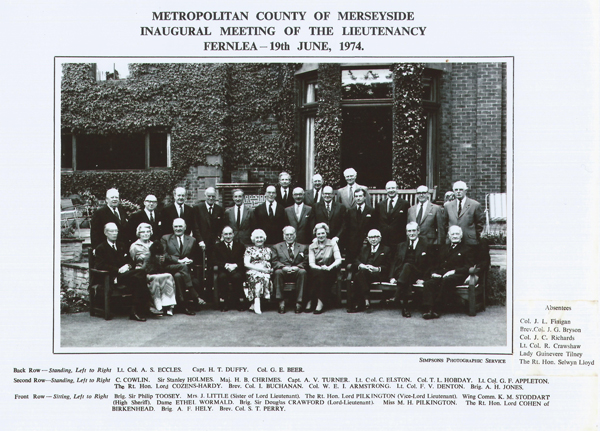Lord-Lieutenants were first appointed to a number of English counties by King Henry VIII in the 1540s, when the military functions of the Sheriffs were handed over to them. Each Lieutenant raised and was responsible for the efficiency of the local militia of his county, and afterwards of the yeomanry and volunteers. He was commander of these forces and appointed officers to serve on behalf of the Crown. These commissions were originally of temporary duration, and it was only when the situation required it that local militia were called upon, for example when invasion by Scotland or France might be expected.
Lieutenancies soon became more organised and their establishment was approved by the English Parliament in 1550. However, it was not until the threat of invasion by the forces of Spain in 1585 that Lieutenants were appointed to all counties and effectively became permanent. Although some counties were left without lieutenants during the 1590s, following the defeat of the Spanish Armada the office continued to exist, and was retained by King James I even after the end of the Anglo-Spanish War.

The office of Lord-Lieutenant was abolished under Cromwell’s Commonwealth, but was re-established following the Restoration of King Charles II in 1660, and the Lord-Lieutenants were given greater powers.
The Forces Act of 1871 transferred command of militias back to the Crown and over subsequent years the emphasis shifted towards today’s ceremonial role and wider involvement with communities throughout the country.
Today the Lord-Lieutenant is an honorary office appointed by the Crown, under letters patent, on the recommendation of the Prime Minister and holds the Office until retirement at not later than the age of 75. The primary duty of Lord-Lieutenants is to be the Sovereign’s representative in their county, and to uphold the dignity of the Crown. They arrange visits of Members of The Royal Family, receiving and escorting them as required; they are involved in the honours system (including The King’s Awards for Enterprise and Voluntary Service); they liaise with local units of the Armed Forces, their Reserves and Cadet Organisations; they participate in civic, voluntary and social events.
Lord-Lieutenants are responsible for the organisation of all official Royal visits to their county. On the day of an engagement they escort the Royal visitor around the different locations – not simply The King, but any member of the Royal Family.
Exchange Station, 4th Floor, Tithebarn St, Liverpool L2 2QP
0151 363 9536